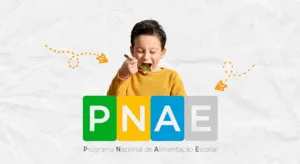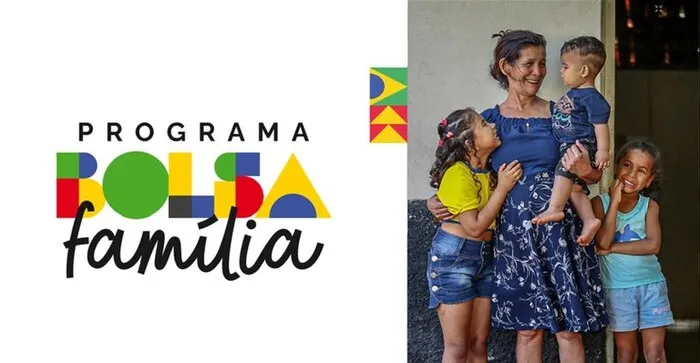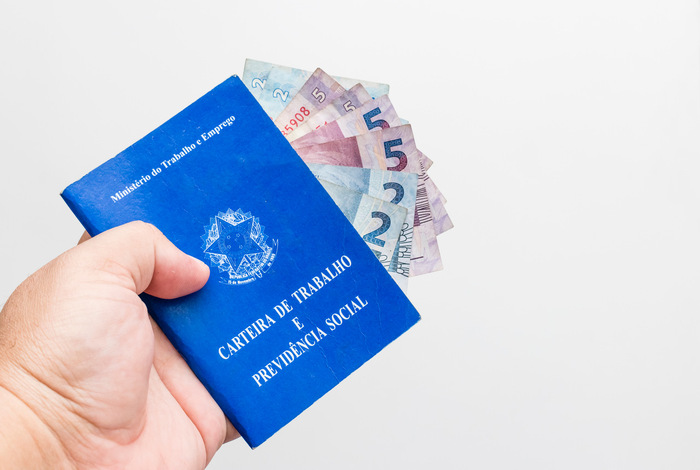Brazil is a country of great social and economic diversity, where the population faces numerous challenges daily. To help reduce inequalities and provide a better quality of life for its citizens, the Brazilian government offers a series of social benefits.
Adverts
These benefits aim to support those who are in vulnerable situations, ensuring access to basic resources and promoting social inclusion. In this article, we will explore the five government benefits most used by Brazilians, highlighting their importance and impact on people's lives.
The Brazilian social protection system is robust, encompassing several programs that meet the different needs of the population. These benefits range from direct financial aid to programs providing access to health, education and food.
Below, we will detail the five most popular and widely used benefits, explaining how they work and their relevance in the current context in Brazil.
With a challenging economic and social scenario, the presence of effective social programs is essential to ensure that basic needs are met and that there are opportunities to improve quality of life.
Bolsa Família
Bolsa Família is, without a doubt, the best known and most used social program in Brazil. Created in 2003, this direct income transfer program aims to support families in situations of poverty and extreme poverty.
The criteria for receiving the benefit are based on the family's per capita income, and the amount received may vary depending on the number of members and the presence of children, pregnant women and teenagers in the family.
The impact of Bolsa Família is significant, as in addition to providing a minimum income for families in need, it is also conditioned on children's school attendance and compliance with the vaccination schedule.
In this way, the program not only alleviates immediate poverty, but also contributes to improving health and education indicators in the long term. This double impact, economic and social, strengthens the family structure and promotes sustainable development in the country's most needy communities.
Government Emergency Aid
In response to the COVID-19 pandemic, the Brazilian government implemented Emergency Aid, a temporary benefit aimed at informal workers, individual microentrepreneurs, self-employed people and the unemployed.
The objective of the aid was to provide financial support for families who lost their source of income during the health crisis. Emergency Aid was essential for millions of Brazilians who faced economic difficulties due to the pandemic.
The program not only helped maintain the livelihoods of the most vulnerable families, but also played a crucial role in mitigating the economic effects of the pandemic, preventing a more severe economic collapse.
Furthermore, emergency aid highlighted the importance of agile and effective public policies in times of crisis, showing the government's ability to respond quickly to the urgent needs of the population, maintaining social and economic stability in times of adversity.
Continuous Payment Benefit (BPC)
The Continuous Payment Benefit (BPC) is another important social program in Brazil. This benefit is essential for many families that have elderly or disabled members, offering them a stable source of income that helps cover basic expenses and provides greater dignity and quality of life.
Provided for in the Organic Law of Social Assistance (LOAS), the BPC guarantees a minimum monthly wage for elderly people aged 65 or over and for people with disabilities of any age, as long as they prove that they do not have the means to provide for their own maintenance or have it. provided by his family.
The BPC is a fundamental pillar of the Brazilian social protection system, serving those who are in a situation of extreme vulnerability.
With this, the BPC not only guarantees the survival of beneficiaries, but also promotes social inclusion, ensuring that these people have access to fundamental rights and can participate more actively in society.
Government Program Minha Casa, Minha Vida
The Minha Casa, Minha Vida Program (PMCMV) is a federal government initiative to facilitate access to housing for low-income families. Launched in 2009, the program offers more accessible financing conditions for purchasing a home, in addition to subsidizing part of the value of the property for families with lower income.
The importance of the PMCMV lies in its ability to reduce the housing deficit in Brazil, providing millions of families with the opportunity to have decent and adequate housing.
Furthermore, the program contributes to the economy, generating jobs in the construction sector and stimulating urban development. With the PMCMV, many families stopped living in precarious conditions and started having a safe and comfortable home, which has a direct impact on the health, safety and well-being of these people.
The continuity and expansion of this program are crucial to tackling the housing deficit and improving the quality of life of thousands of Brazilians.
National School Food Program (PNAE)
The National School Meal Program (PNAE) is one of the oldest Brazilian public policies, having been established in 1955. The PNAE aims to guarantee the provision of healthy and adequate school meals for students in public basic education.
The program serves millions of students daily, providing meals that contribute to children's physical and cognitive development. The PNAE plays a crucial role in the food and nutritional security of students, especially those from low-income families.

In addition to improving nutrition, the program also encourages students to remain in school, contributing to reducing school dropouts and improving academic performance.
Through PNAE, the government ensures that all children have access to balanced meals, essential for their development and learning, in addition to promoting healthy eating habits that can last throughout their lives. The continuation of this program is vital to maintaining an inclusive and healthy educational environment.
Conclusion
Brazilian social programs are fundamental for reducing inequalities and promoting social inclusion. Benefits such as Bolsa Família, Auxílio Emergencial, BPC, Minha Casa, Minha Vida and PNAE demonstrate the government's commitment to providing support to the most vulnerable populations, guaranteeing them access to essential resources.
The continuity and effectiveness of these programs are essential for building a more just and egalitarian society, where all citizens have the opportunity to live with dignity and have access to the same opportunities.
In times of crisis, such as the COVID-19 pandemic, these benefits become even more vital, highlighting the importance of a solid and comprehensive social protection system.
The government's ability to adapt and expand these programs according to the emerging needs of the population is crucial to the country's social and economic resilience, ensuring that everyone has the chance to thrive.

